SUMMARY
This is AI generated summarization, which may have errors. For context, always refer to the full article.
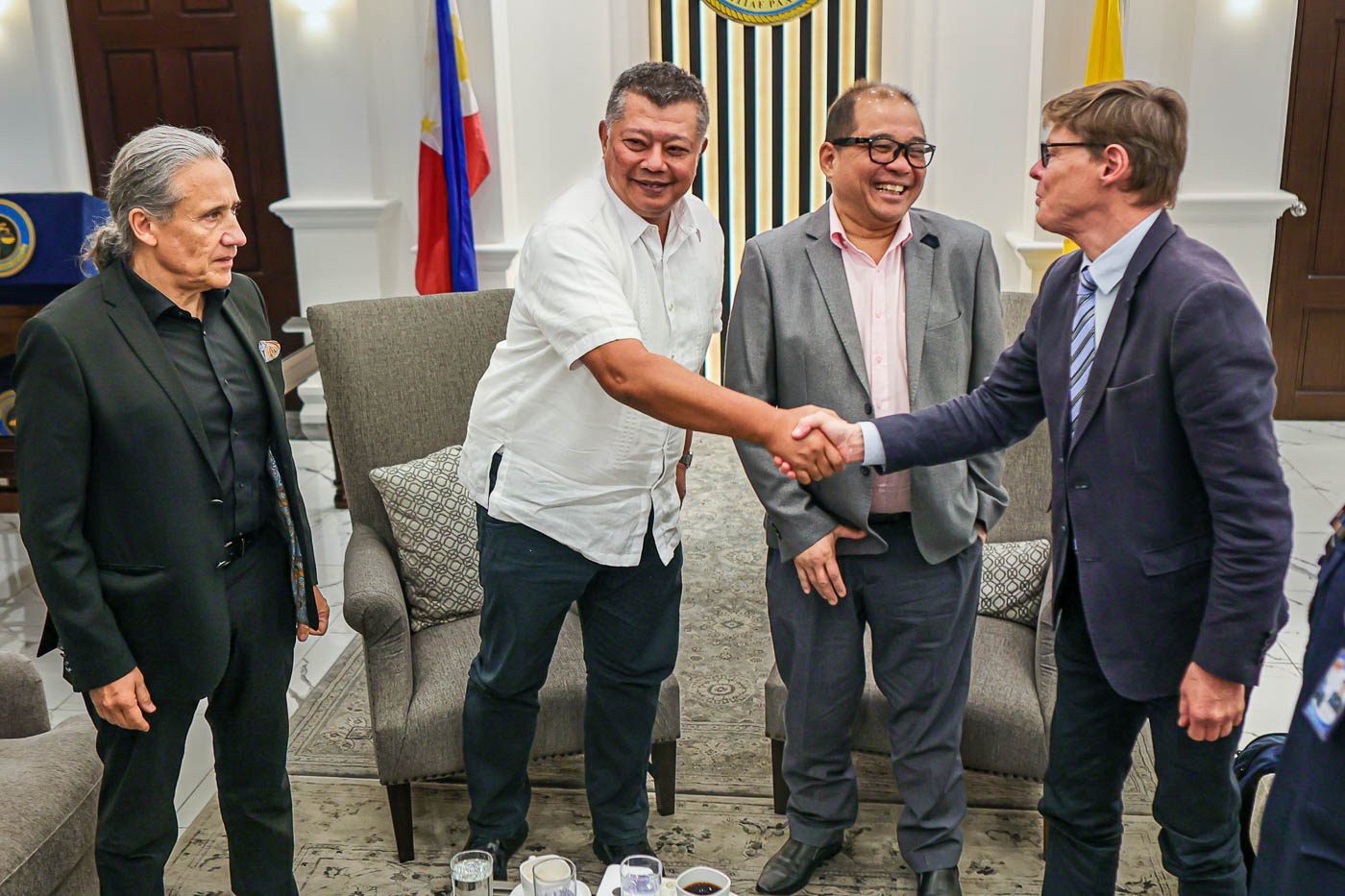
MANILA, Philippines – Justice Secretary Jesus Crispin “Boying” Remulla said Tuesday, February 7, the cases of extrajudicial killings in the country were not discussed during his meeting with United Nations special rapporteur on extrajudicial, summary, or arbitrary executions Dr. Morris Tidball-Binz
“No. We didn’t discuss these cases but we discussed certain trends we’re following in [the] DOJ for investigations we’re conducting, like how were dealing with things that were left to us…We just shared many things we’re doing here,” the Department of Justice (DOJ) Secretary responded during the press conference, when asked if the drug war killings were brought up during his meeting with the UN expert.
Last week, the justice department announced that Remulla would meet the UN expert. Although the DOJ immediately clarified that Dr. Tidball-Binz’s visit will be in a professional capacity – and not as a representative of the United Nations.
The announcement was made the same week forensic pathologist Dr. Raquel Fortun publicized the results of reexamination on Kian delos Santos’ remains. Delos Santos was the unarmed 17-year-old boy, who was killed by Caloocan cops in a police operation at the height of the bloody drug war in 2017.
Based on Dr. Fortun’s latest findings, the Philippine National Police (PNP) and Public Attorney’s Office were remiss in examining the victim’s body, with the PNP only making a superficial cut during the autopsy. This means Kian’s body was inadequately examined because his remains were barely opened for the post-mortem examination. Dr. Fortun also said that she found a bullet around the boy’s neck area.
At least in two separate interviews with reporters, Remulla reiterated that the meeting between him and the UN expert was for “capacity building” – meaning to improve the country’s capability on forensic pathology. Remulla said they specifically planned to conduct trainings for at least 35 medical doctors, and health professionals from other agencies like the military and the police.
“So we invited Dr. Tidball-Binz to come over, to help us build capacity so that we will have a program for the doctors of the government, the police, the NBI, probably the military doctors to have special courses in forensic pathology so that we can build our capacity and we will handle situations like untimely death situations,” the justice secretary said.
Remulla added that they would ask the United Nations Joint Program to fund the proposed project.
Spin?
During the January 30 episode of Laging Handa, DOJ spokesperson Assistant Secretary Mico Clavano said that the Philippine government invited the UN expert to check on the government processes, including the updates on local probe. He also noted that Dr. Tidball-Binz’s visit assailed the ICC’s decision since it showed that the Philippine government was already cooperating with the international community.
Human Rights Watch senior researcher Carlos Conde – who has been following drug war and extrajudicial killings for years – said the visit’s intention was to show that the ICC investigation was not needed and should be rejected. Conde added the move was “disingenuous, if not cynical.”
Not only autopsy
Remulla’s meeting with the UN expert did not only come after Dr. Fortun’s revelation – but also shortly after the International Criminal Court (ICC) moved to resume the probe into drug war killings. The ICC, in various occasions, had repeatedly said that it was not satisfied with the Philippine government’s intervention in the killings.
At one point, ICC prosecutor Karim Khan said assailed the DOJ’s drug war review. He called it a “desk review,” adding that a “desk review by itself does not constitute investigative activity.” Even though Remulla and the UN expert talked about the forensic pathology part, it’s only one of the many factors the Philippine government needs to address.
As of 2023, there were only a handful of convictions in relation to drug war deaths.
The most prominent was the conviction of the cops, who killed Kian in 2017. It was followed five years later – in 2022 – in the case of Carl Angelo Arnaiz and Reynaldo “Kulot” de Guzman, where cops were convicted of torture and planting of evidence. The murder case for the two is still pending before a Navotas court.
In addition, even under the new administration, the culture of killings persists.
Editor’s Note: An earlier version of this story referred to Dahas as an NGO run by UP’s Third World Studies Center. This has been corrected.
According to Dahas, a running count of the reported drug-related killings in the Philippines by the Third World Studies Center of the University of the Philippines (UP) Diliman, there have been 193 reported drug-related killings from July 1, 2022 to January 31, 2023.
Meeting with Fortun, rights groups
On Saturday, February 11, Dr. Raquel Fortun posted photos of Tidball-Binz’s visit to UP Manila. In a message to Rappler, Fortun said the “academic visit” took place on Wednesday morning, February 8, a day after Remulla’s meeting with the UN expert.
“They’re planning on holding a course to promote the Minnesota protocol on investigations. UN, DOJ, Monash University, UP. [We] showed them the department, where the training classes [can] be held. UPCM (College of Medicine) dean Charlotte Chiong was there with me,” Fortun said.
Aside from Tidball-Binz, Kingsley Abbott, director of Global Accountability and International Justice at the International Commission of Jurists, and Stephen Cordner, a professor of Forensic Medicine at Monash University, also paid Fortun a visit.
The three also signed a copy of The Minnesota Protocol on the Investigation of Potentially Unlawful Death, which, according to the UN, is the “golden standard” in the probe and prevention of possible unlawful deaths.
The international experts also met with local civil society organizations and human rights groups. Among them were Karapatan secretary general Tinay Palabay and lawyer Kristina Conti of the National Union of Peoples’ Lawyers (NUPL).
Conti told Rappler that the experts welcomed insights on actual human rights cases in the country like the drug war killings.
“Dr. Tidball-Binz’ team, with Kingsley Abbot and Stephen Cordner, is keen on crafting a tailored training program for government forensics teams. They also entertained feedback and reflections on actual cases from civil society and grassroots human rights organizations. For sure, our experiences in investigating and prosecuting tokhang cases came to the fore,” Conti told Rappler.
“The Minnesota Protocol, which first developed and was spurred on when US lawyers worried over the lack of accountability over the political assassination of Ninoy Aquino, unfortunately has not found a foothold in the Philippine government,” the NUPL lawyer, who also handles drug war-related cases, added. – Rappler.com
Add a comment
How does this make you feel?
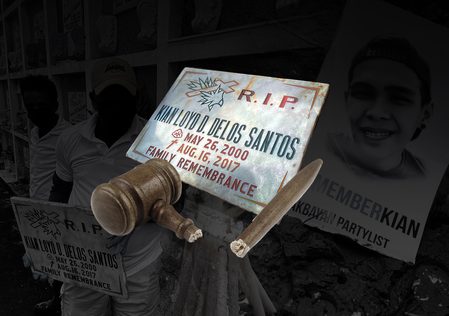


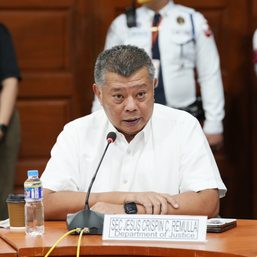
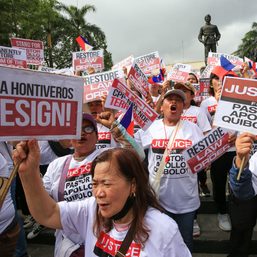
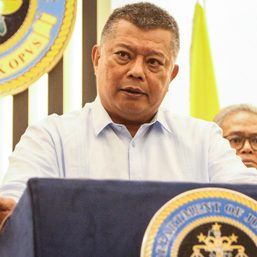

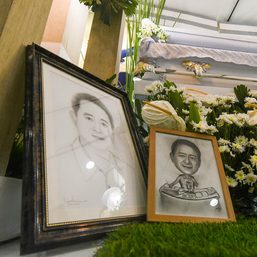







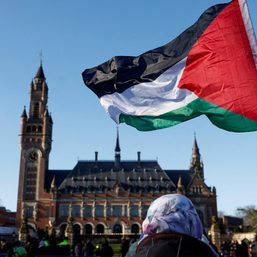





There are no comments yet. Add your comment to start the conversation.